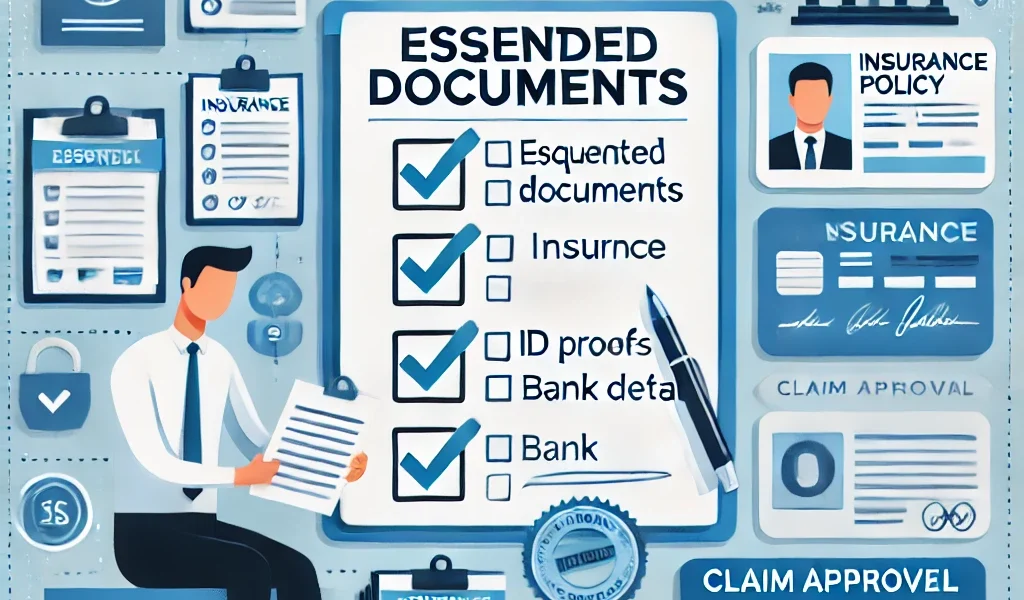Filing an insurance claim can be a daunting process, but having the right documents can make the approval process smooth and hassle-free. Whether it’s for health, auto, home, or business insurance, submitting the correct paperwork can significantly impact the speed and success of your claim. This guide will walk you through the essential documents needed for a seamless claim process, ensuring you receive your rightful compensation without any legal complications.
1. Understanding the Importance of Proper Documentation
1.1 Why Documentation Matters?
- Accurate documentation helps verify the legitimacy of your claim.
- It speeds up the approval process by providing clear evidence of the loss.
- Reduces the chances of claim rejection due to insufficient proof.
1.2 Common Reasons for Claim Delays or Denials
- Incomplete or missing documents.
- Incorrect or outdated information.
- Failure to provide proof of damage, ownership, or expenses.
2. Essential Documents for Different Types of Insurance Claims
2.1 General Documents Required for All Claims
- Duly Filled Claim Form: Provided by your insurance company, it must be completed accurately.
- Policy Document: A copy of your insurance policy to confirm coverage details.
- Identity Proof: Government-issued ID such as a passport, driver’s license, or Aadhaar card.
- Address Proof: Utility bill, rental agreement, or any official document verifying your address.
- Bank Account Details: A canceled cheque or bank statement for direct deposit of the claim amount.
2.2 Documents for Health Insurance Claims
- Medical Bills & Receipts: Original copies of hospital bills, pharmacy receipts, and doctor’s prescriptions.
- Discharge Summary: A detailed report from the hospital outlining the treatment received.
- Doctor’s Reports & Diagnosis: Medical reports confirming the illness, tests, and prescribed treatments.
- Pre-Authorization Form (for Cashless Claims): Approval form issued by the insurer for cashless hospitalization.
- Health Insurance Card: Issued by the insurer, confirming policy details.
2.3 Documents for Auto Insurance Claims
- Copy of Driver’s License: To verify eligibility to drive.
- Vehicle Registration Certificate (RC): Proof of ownership.
- FIR or Police Report (for Accidents & Theft): Mandatory in case of third-party claims, major damages, or stolen vehicles.
- Garage Repair Estimate & Bills: Cost estimation and repair invoices from an authorized workshop.
- Photographic/Videographic Evidence: Clear images of vehicle damage and accident scene.
2.4 Documents for Home Insurance Claims
- Proof of Ownership: Property deed, lease agreement, or mortgage documents.
- Damage Report: A written assessment of the damage by a certified professional.
- Repair/Replacement Estimates: Quotes from contractors for repairs or replacements.
- Police Report (for Theft or Vandalism): Essential for claims involving burglary or vandalism.
- Photos & Videos of Damage: Before-and-after images of the property damage.
2.5 Documents for Business Insurance Claims
- Business Registration Certificate: Proof that the business is legally registered.
- Financial Statements: Profit and loss statements, invoices, and balance sheets.
- Inventory Records: Details of damaged or stolen stock.
- Legal Contracts: Agreements related to the insured property or equipment.
- Police Report (for Theft or Fire Accidents): In case of criminal activity or major incidents.
3. Steps to Ensure a Hassle-Free Claim Approval
3.1 Keep Your Documents Organized
- Store digital and physical copies of all important documents.
- Maintain a dedicated folder for insurance-related paperwork.
3.2 Verify the Accuracy of Information
- Double-check details like policy number, name, and claim amount before submission.
- Ensure all forms are correctly filled to prevent unnecessary delays.
3.3 Submit All Required Documents at Once
- Avoid multiple follow-ups by providing complete documentation in one go.
- Use checklists provided by your insurer to confirm all necessary papers are included.
3.4 Follow Up with the Insurer Regularly
- Keep track of claim status through online portals or customer service.
- Respond promptly to any additional document requests from the insurer.
3.5 Seek Expert Assistance if Needed
- Consult an insurance agent or legal advisor if you face complications.
- Consider hiring a public adjuster for complex claims involving large payouts.
4. Frequently Asked Questions (FAQs)
Q1: What should I do if I lose my insurance documents?
Contact your insurer immediately and request a duplicate copy. Many companies offer digital versions of policy documents.
Q2: Can I submit digital copies instead of physical documents?
Most insurers now accept scanned copies, but it’s best to confirm with your provider.
Q3: How long does it take for an insurance claim to be approved?
Approval times vary but typically range from a few days to several weeks, depending on the claim type and completeness of documents.
Q4: What happens if I submit incorrect or incomplete documents?
Your claim may be delayed or rejected. Always verify and submit all required paperwork correctly.
Q5: Is a police report necessary for all insurance claims?
No, but it is mandatory for auto accident claims, theft, fire damage, and other criminal-related incidents.
Final Thoughts
Having the right documents in place is crucial for a smooth and hassle-free insurance claim approval. By preparing in advance, staying organized, and understanding the documentation requirements for your specific policy, you can avoid unnecessary delays and maximize your chances of a successful claim.




